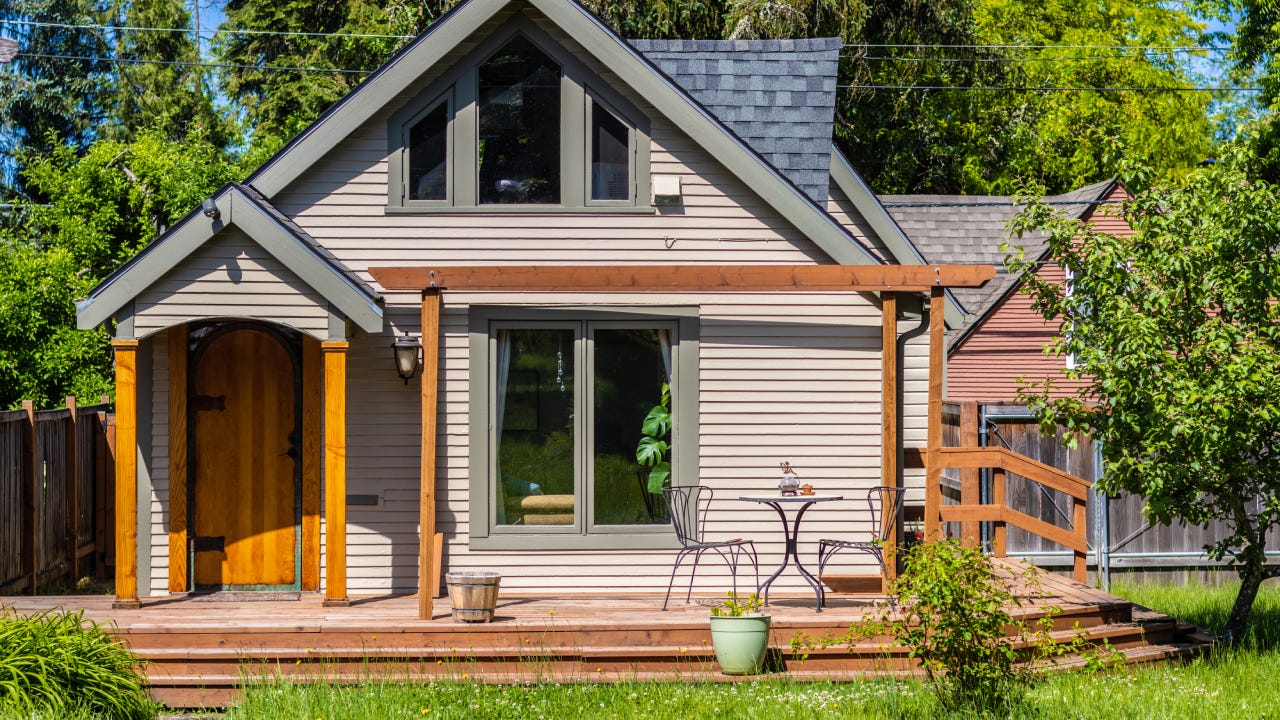How to sell a house by owner in Oregon

Key takeaways
- You can sell a house in Oregon without hiring a real estate agent, but it adds a lot of work to your plate.
- If you go it alone, there’s no need to pay a listing agent’s commission. However, you might still have to pay your buyer’s agent.
- You don’t need a lawyer to sell a home in Oregon either, but working with one will help ensure your interests are protected.
Hiring a real estate agent is the most common way of selling a home in Oregon, but you can also do it yourself — without an agent’s help. Under this arrangement, known as a “for sale by owner” (FSBO) sale, you’re in complete control of your sale, and you can skip the listing agent commission fee to boot. However, there are also serious drawbacks to this approach. Here’s everything you need to know about how to sell a house by owner in Oregon, including the benefits and risks.
Selling a house without a Realtor in Oregon
When you choose to sell without a Realtor’s help, you’ll assume all of their normal duties, from listing to closing. Try to set aside any emotional attachment you have to your home and put yourself in a buyer’s shoes. Here are some of the most important tasks you’ll need to handle, step-by-step.
Set an asking price
How much is your house worth? In a traditional sale, an agent would advise you on how to price your home appropriately based on local market conditions. But as a FSBO seller, setting the right asking price becomes your responsibility.
Conduct some research first: You can start by looking at local comps, or similar homes nearby, to understand how much houses like yours are selling for and how long it takes. Make sure to focus on properties in your specific area, because home values can vary drastically by location. For example, May 2024 Redfin data data shows that Oregon’s statewide median home sale price was $523,300. Portland’s local median was very close to that figure at $540,000 — however, in Medford it was just $400,000, while in Bend it was much higher at $750,000.
Create a listing
Your next step is to put together an online listing that highlights the most important features of your home. It should include a written description with basic details such as:
- Age
- Square footage and lot size
- Number of bedrooms and bathrooms
- School district, neighborhood and homeowner’s association (HOA) information
In addition to the basics, be sure to talk up any special features the home might have, like a tennis court or sauna or mountain view.
Speaking of views, your listing also needs high-quality photos of both the interior and the exterior. Without them, you’re unlikely to grab the attention of buyers, as most look at listings online before they go hunting in person. You don’t want them to scroll past because the photos didn’t look appealing. If possible, hire a professional to capture your home’s best angles and bring your listing to life.
Market your property
When your listing is ready, it’s time to promote it. It doesn’t hurt to put a “FSBO” sign in your front yard, and you can promote your listing through social media and community websites. (Avoid revealing too much personal information, though, especially if you still live in the house.)
But the most effective way to do this is by getting it on your local multiple listing service (MLS), a database where real estate professionals list and view available properties. This helps get your listing on popular listing portals like Zillow as well. Only pros can access the MLS on their own, but there are services out there that will add your home to the MLS on your behalf for a fee. (Prices will vary depending on how much other marketing help you want, if any.) Oregon sellers have plenty of these companies to choose from, including national brands like Houzeo and Flat Fee Realty, or local businesses like By Owner Oregon and Premier Trust Realty.
Ideally, your listing will attract prospective buyers who want to see your house in person. To facilitate that, you can schedule an open house or coordinate with individual buyers to set up private viewings. You’ll have to keep the home neat and tidy at all times just in case.
Close the deal
Before you move forward with an offer, you may need to negotiate various terms of the deal, including the sale price, concessions or timeline. You’ll also need a legally binding contract — it’s smart for FSBO sellers to have a real estate attorney help with this part. A lawyer can also oversee the closing process and paperwork to make sure your interests are properly protected.
Required disclosures for Oregon home sellers
FSBO sellers must make all the same disclosures as any other home seller in Oregon. You’re required to fill out the state’s seller’s property disclosure statement and provide it to anyone who makes a written offer on your home. The form includes questions about the property’s condition, history, title, water source, sewage system and more. If your property was built before 1978, you may need to complete a lead-based paint form as well. And for properties that are part of homeowners associations, you’ll need to provide various documents related to your HOA’s financials and bylaws.
Do I need a lawyer to sell my house in Oregon?
No. While some states require home sellers to hire a lawyer, Oregon is not one of them. Still, it’s worth considering — particularly in a FSBO sale. Real estate transactions are complex, and you could face legal or financial consequences if you make a mistake (even unknowingly). A real estate attorney will understand your local laws and make sure your deal adheres to them.
Pros and cons of selling a house by owner in Oregon
If you’re up for the challenge, selling without a Realtor has several benefits. But there are drawbacks as well, especially if you have limited real estate experience.
Pros
- You save on commission: If you don’t hire a listing agent, you won’t have to pay their commission fee. On a median-priced $523,300 Oregon home, a 2.5 percent commission comes to more than $13,000 — a significant savings.
- You’re in control: Without a Realtor, you’re free to do things your own way. There’s no one else trying to tell you what to do (or not to do).
- You don’t have to wait: It’s common for agents to have multiple clients at once, so their time with you may be limited. As a FSBO seller, you don’t have to work around an agent’s schedule and can move at your own pace.
Cons
- It’s serious work: Selling independently comes with a long list of responsibilities, including creating and promoting your listing, coordinating and hosting showings, negotiating with buyers and more.
- Finding a buyer can be challenging: Agents don’t just promote your listing to the public; they often share it with their established networks of fellow agents and buyers, too. Without those connections, it can be harder to find interested buyers.
- You might take home less money: Research from the National Association of Realtors shows that FBSO homes typically sell for less than homes sold by an agent. And with so much money at stake, an amateur mistake can be costly.
FAQs
-
Yes. All homeowners are responsible for paying their property taxes until the buyer officially takes ownership on closing day. In addition, if you’re in Washington County, you’ll have to pay at least a portion of the county’s real estate transfer tax, a one-time fee for transferring ownership of the property. If your home’s value has increased substantially since you bought it and you make a significant profit, you might need to pay capital gains taxes as well.
-
There’s a lot of paperwork required to sell a house, in Oregon and every state. This will include the seller’s disclosure form, as well as the purchase agreement, deed and closing statement. There will also be HOA documents if the home is part of a homeowners association. And if you’re paying off a mortgage, your lender will provide you with important documents related to that as well.
Why we ask for feedback Your feedback helps us improve our content and services. It takes less than a minute to complete.
Your responses are anonymous and will only be used for improving our website.
You may also like

What is a fixed-rate mortgage?

Housing market predictions for the rest of 2025




